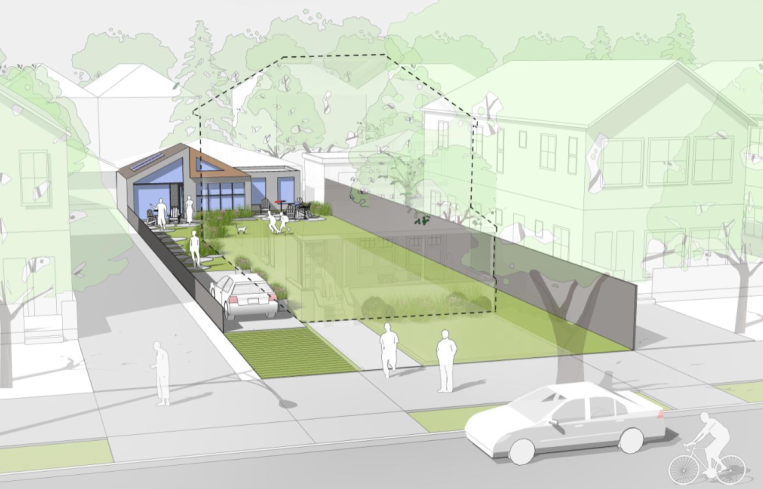NYC Announces New Funding for Accessory Dwelling Units and Basement Conversions
By Rebecca Baird-Remba November 21, 2023 4:44 pm
reprints
New York City’s Department of Housing Preservation and Development (HPD) has announced a new pilot program to help homeowners add an extra apartment in a basement, backyard or garage, as the city considers rezoning lower-density neighborhoods to allow for accessory dwelling units (ADU).
The city has secured $2.6 million in state funding for the effort, which would be split 50-50 with the city on each specific project. Homeowners would be eligible to receive up to $395,000 apiece to cover construction and design costs, and the pilot program would cover accessory dwelling unit projects at up to 15 single-family homes.
“By paving the way for easier, more affordable accessory dwelling unit conversion, we are delivering a tangible win for families,” said Mayor Eric Adams in a statement. “Whether it’s for seniors who need space for a caregiver, a multigenerational household who want separate living spaces, or young parents with a little one on the way, an ADU can offer the flexibility families need to make New York City work for them.”
The new units — which can be added as a new structure in a backyard or converted from existing space in a garage or attic — would still have to comply with existing zoning and building codes, which can make it difficult to add another apartment to a single-family house. Owners can get stymied by height limits, zoning rules that forbid anything other than single-family homes, and the requirement to add a second driveway to accommodate another unit, as housing nonprofits like Citizens Housing and Planning Council have noted.
The city has also struggled to regulate safety issues with illegal conversions of one- and two-family homes, leading to dangerous flooding in basement units or not having enough exits in the event of a fire or disaster.
Mayor Adams’s ambitious “City of Yes for Housing Opportunity” package could eliminate some of these zoning hurdles if it passes next year. However, the wide-ranging set of proposals is already facing political headwinds, including new City Council bills that would require prevailing construction wages for projects that receive tax incentives or government subsidies. Allowing more accessory dwelling units in one- and two-family neighborhoods is part of Adams’s larger goal to add 500,000 new homes over the next decade, with the City of Yes zoning changes projected to add 100,000 units.
If this accessory dwelling unit program sounds familiar, that’s because former Mayor Bill de Blasio launched a similar pilot in 2019 aimed at financing basement conversions in East New York, Brooklyn. Only a handful of projects were completed under that initiative, because basements are notoriously difficult and expensive to legalize as living space, and HPD provided only $120,000 per home. The city also failed to make the kind of code and zoning changes that would make it easier for many homeowners to accomplish a conversion. To top it off, the city largely defunded the program in 2020 during a wave of pandemic budget cuts.
“My district is home to the city’s first and only basement conversion pilot, and we have seen how important — and expensive — ADU production can be,” said City Councilwoman Sandy Nurse, who represents East New York. “With state resources and strong City Hall backing, we can streamline safe conversions and other ADU production to provide proof of concept while alleviating our housing crisis.”
Rebecca Baird-Remba can be reached at rbairdremba@commercialobserver.com.



